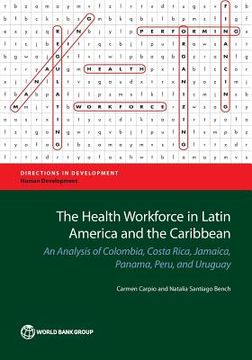Synopsis "The Health Workforce in Latin America and the Caribbean (in English)"
This report provides a status update on the human resources for health (HRH) sub-system in six Latin American and Caribbean countries: Colombia, Costa Rica, Jamaica, Panama, Peru, and Uruguay. The report structures its discussion around how the health workforce is financed, organized, managed, regulated, and performing. In the area of financing, the study presents the variety of contracting mechanisms, salary levels, and financial incentives offered across the countries and their role in being able to attract and retain health workers. On the organization of the HRH sub-system, the report looks at the skill-mix, training, and distribution of health care workers concluding that although the countries have made progress towards achieving key HRH targets and in making education more accessible, there continues to be limited absorption capacity for graduates, the Primary Health Care focus of training programs needs to be strengthened, and strategies to encourage rural service have not been able to fully address the gap in the distribution of health workers. In reviewing management strategies for HRH, the report presents how all countries have adopted the WHO Global Code of Practice on the International Recruitment of Health Personnel to recognize foreign-trained professionals to help address shortages and fill gaps of health worker presence in rural, remote areas. However, the countries continue to struggle with putting self-sufficiency policies in place to meet HRH needs such as the lack of promotion plans, limited non-monetary incentives, and the shortage of personnel for recruitment and eventual placement. In the area of regulation, the report presents the countries' efforts to reduce precarious employment and introduce HRH safety policies and legislation to regulate disputes and negotiations. On performance, the report found mixed results in the areas of access/availability to health workers and quality of care, factors discouraging dual practice, and unjustified absenteeism of health workers.

